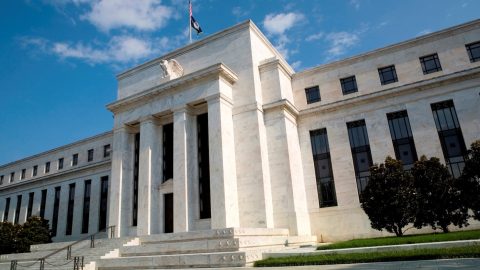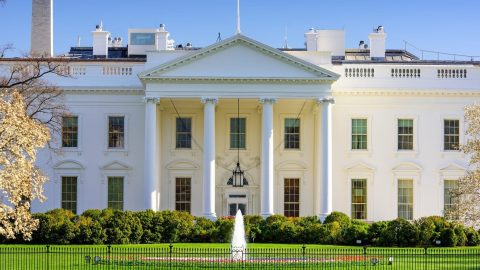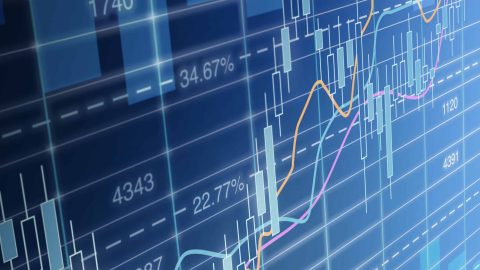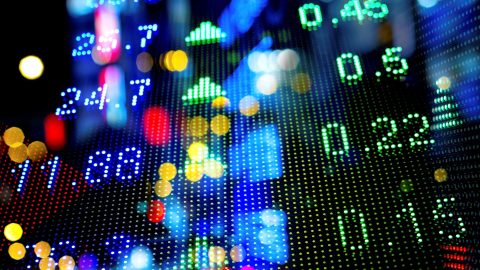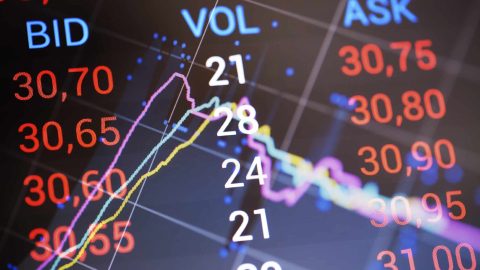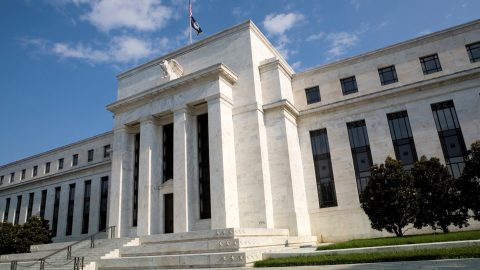Author's Contributions

Fragile bull market
It is as difficult to remain invested in a bull market as it is to leave a bear market. After all, investors are risk-averse. Taking into account the four most important categories for the assessment of the attractiveness of asset classes – valuation, liquidity, positioning, and growth – one would conclude that the most important driving factor for the markets builds on the last one.
Higher growth vs. increased political uncertainty
The first weeks of the new year have already picked up from where the trends that started in 2016 and the hypotheses for 2017 left off: higher growth, normalisation of inflation, increased uncertainty with regard to the effects of Trumponomics, and a gradual end of the loose monetary policy.
Macro: 10 theses for 2017
What are the topics that will be relevant this year? In commemoration of the fifth centenary of Martin Luther posting his 95 propositions, we, too, want to suggest ten theses for 2017.
US central bank confirms trend reversal
We have seen a number of trend reversals this year, one of them being the end of the negative growth surprises. The forecast of economic growth and inflation are currently not subject to downwards revisions any longer.
Italy – the third domino
On Sunday 4 December Italy will be holding a referendum on an amendment to the constitution. This is relevant particularly because in case of a rejection, the political uncertainty would increase.
Trumponomics
The market participants are still focused on the implications of Donald Trump’s victory at the US presidential elections. In simple terms, “Trumponomics” are a combination of expansive fiscal policies and restrictive trade policy. An increased budget deficit is supposed to support economic growth, while the curbing of free trade aims at job protection.
The impact of Donald Trump’s election victory
After a long campaign, the results of the US presidential election are in: Donald Trump will be the next President of the United States. In addition, the Republican Party has retained its majority in Congress. What are the repercussions for the global economy and the financial markets?
Clinton versus Trump
The rising relevance of the anti-establishment movement across many parts of the world has instilled a particular sense of urgency and importance into the upcoming presidential elections in the USA on 8 November.
High uncertainty, low volatility
Uncertainty is high, while volatility is low. How to resolve the contradiction?
Postponed is not abandoned
Bond yields were up last Friday, whereas equities recorded losses. Signs that the bull market with low volatility, which started after the Brexit vote, is drawing to an end are becoming more plentiful.
Increasing volatility expected
In the weeks following the Brexit referendum, the prices of many asset classes were rising amid mild fluctuations. However, an increasing number of clues suggest higher fluctuation for the coming months.

Brazil: Olympic Games of politico-economic indicators
In Brazil, or more specifically, in Rio de Janeiro, the 31st Summer Olympics will be held in August of 2016. After Mexico City (1968), Moscow (1980), Seoul (1988), and Beijing (2008), this is only the fifth outing in the city of an emerging economy. The holding of the Games reflects the increasing economic importance of […]

Brexit-Referendum – a Non-Event?
Was the decision by the UK to leave the EU a non-event? Globally speaking, share prices have increased, the spreads for default risk have narrowed on many markets, and the UK central bank, i.e. the Bank of England, did not cut its key-lending rate. Good growth rate The economic indicators continue to suggest real economic […]
Brexit: How resilient is the financial system?
The vote in favour of leaving the EU by the UK means one thing above all: uncertainty. Because the effects on the sentiment and the behaviour of companies, the public, the financial market participants, and the political parties are difficult to predict. Paradoxically, the prices of risky assets such as equities, corporate bonds, and emerging […]
Independence Day
On 23 June the people of the UK voted in favour of an exit from the European Union. Basically the UK thus strengthened its supposed (?) state sovereignty at the expense of the economic advantages of an EU membership. For the rest of the EU, its economic and political clout weakens as a result.
Brexit or secular stagnation?
Risk-averse markets The classic indicators on the capital market suggest rising risk with respect to the economy and risky assets. Spreads have widened, and the yield differential between long-term and short-term government bonds has fallen; volatility has increased. Also, the inflation rate priced in has decreased, the Japanese yen and the Swiss franc have appreciated, […]
A brighter financial environment
The financial environment has brightened up. Equity and commodity prices have increased. At the same time, spreads and (implied) volatilities have declined. The positive development across many parts of the world has been supportive to the optimism of investors with regard to an improvement of the economic environment. In conjunction with the surplus liquidity, they […]

Default risk preferred
Equities have recovered from their beginning-of-year slump, and bonds, especially corporate and emerging markets, have recorded impressive gains. The loosening of the monetary environment in China and the continuation of the loose monetary policy in the USA have reduced the risk aversion of investors. In terms of asset allocation, we generally prefer default risk. Equities […]
Fed supports markets
The US central bank signalled the continuation of its loose monetary policy at its FOMC meeting on 27 April. This is remarkable given that along with the short-term stabilisation of the Chinese economy, this Fed policy is one of the most important reasons for the price rises of risky assets since February.
Challenging environment on the Stock Exchange
The recovery from the slump on the equity markets we saw at the beginning of the year is coming to an end. The rally is losing steam. The search for new supporting factors in addition to the expansive central bank policies is difficult. In line with the general strategy “sell on highs”, we took the […]
Expansive central bank: The Only Game in Town
The Council of the European Central Bank (ECB) further loosened its monetary policy on 10 March 2016. In view of the decline of the leading economic indicators and the excessively low inflation in the Eurozone, the bundle of measures introduced by the ECB is necessary. But, to paraphrase Mohamed El-Erian, the expansive central bank policy […]
Capital markets take a little breather
The economic indicators are falling but do not suggest a recession. The central banks are implementing expansive measures in order to fight deflation risks and to stabilise the financial markets. Hence, the data is slightly better than capital markets were expecting. This gives room for a little breather.
Investors are focussing on the USA
The United States are currently in the spotlight, given the primary elections for the US presidential election in November. But what does the US economy look like at the moment?
Short-term recovery
Growth is weak, and the downside risks are elevated. However, in a pre-emptive move, the market has already priced in the materialisation of some of the risks. The current development would not immediately suggest it. A short-term phase of recovery on the equity markets would fit this picture. The past days and weeks have not […]
Losses reflect economic worries
The losses on the stock exchanges and in other risky asset classes unsettle investors. The additional expansive signals sent by the central bank support markets, albeit only by a minor degree. From an economic perspective there are no convincing signs for a trend reversal. The current correction is due to permanently low growth and to […]
Turbulent capital markets: what to expect in 2016?
The price declines on the equity markets at the beginning of the year suggest a decline in investor confidence. Is this justified? Please find a few hypotheses for 2016 in the following:
ECB fights deflations risks
On 3 December the European Central Bank loosened its monetary policy further. The reaction from the markets was that of disappointment, as assets had had more extensive measures priced in.
Janet Yellen: Inflation Fighter
The US central bank Fed hinted at an increase of the Fed funds rate in December at its meeting on 28 October. A bias towards such an increase is referred to as tightening bias. If the economic data permit it, the Fed will increase the Fed funds rate from practically zero percent. The extent and […]
Mario Draghi – Deflation Fighter
The arguments supporting a further rise in share prices have become stronger. The important central banks have been sending expansive signals in recent weeks, i.e. signals that support the economy and the markets. The latest measure was the statement made by the president of the European Central Bank (ECB), Mario Draghi, at the ECB press […]
Twilight over the Capital Markets
Are we now on the other side of the recent price decline in the risky asset classes? Global equities, bonds with default risk, and emerging markets have been recording significant gains. Has the fundamental situation improved, or had the assets excessively negative events priced in?
Will 2016 be “The Good”, “The Bad“ or „The Ugly“?
The beginning of Q4 is the time for an outlook on the coming year. At first we want to establish the determining factors for the economic activity and the markets. On this basis, we will introduce three scenarios.
The refugee crisis: there is no way around a comprehensive solution
The current refugee crisis is immense. Estimates expect more than a million people to apply for asylum this year in the European Union; i.e. we are talking about 0.2% in terms of total population. This would suggest that the immigration can be handled if all the countries cooperate.
All eyes on Washington: Will the Fed funds rate be raised?
Interest rate decision by the Fed Tomorrow, Thursday 17 September 2015, the federal Open Market Committee (FOMC) of the US central bank Fed will be taking an important decision. Is the Fed funds rate to be raised or not? The financial markets have accorded this decision a particularly important role. After all, the rate hike […]
The return of volatility
Earlier this year the president of the ECB said we would have to get used to elevated levels of volatility. And it is true, the market environment has changed. The years 2009 to 2014 were subject to an asset price reflation regime. High rates of return were coupled with low volatility. This relationship has now […]
“Black Monday” at the stock exchanges: Why?
Market correction Equities, bonds affected by default risk, commodities, and emerging markets currencies are currently subject to corrections, which, noticeably, have now gone beyond the purview of emerging markets: while the emerging markets equity index declined by almost 6% (Performance-Data Source: Bloomberg, MSCI) last week, the index for developed markets lost 5.3% (Performance-Data Source: Bloomberg, […]
Devaluation of the Chinese currency
On 11 August China devalued its currency by 1.9% relative to the US Dollar and announced that in the future it would expose the exchange rate of the Renminbi to the forces of supply and demand on the foreign exchange market. In a press conference the Central Bank did say, however, that it would continue […]
Emerging countries under pressure
Commodity prices have fallen drastically since the beginning of July. The commodity price index provided by Bloomberg has fallen by nearly 12%. In fact, many commodity prices are locked in a bear market. The index is currently almost 50% below the level of the beginning of 2011. Over the same period the currencies of emerging […]
China weighs heavy on commodity prices and production
Global GDP growth has probably only increased marginally in Q2 after the very weak Q1. Economic activity has thus remained disappointingly weak on a global scale.
Agreement between Iran and the P5+1 countries depresses oil price
The negotiations between Iran and the UN veto powers plus Germany were concluded successfully on Tuesday, 14 July. Iran will curtail its nuclear programme. In exchange, the international economic sanctions will be reduced. The result is remarkable in so far as the interests of the P5+1 (the five permanent members of the UN Security Council […]
Parallel currency in Greece?
Last Sunday, the Greek people decided with a clear majority to follow the proposal of their government. With 61.3%, the No camp rejected the conditions of the expired adjustment program. Thereby, Greece is one step closer to an exit from the Eurozone and the European Union.
Greece – the never ending story
The breakdown of the negotiations between Greece and its creditors as well as the planned referendum on 5 July troubles capital markets. Greece itself is formally not insolvent. As long that this is not the case the European Central Bank (ECB) will do whatever it takes to contain spillover risks. After the referendum, the next […]
High noon in Greece and the trend to volatility
Summary: The economic recovery in the developed economies is supported by the very expansive monetary policies, lower austerity pressure on the government front and among banks, and the fallen oil price. Growth rates remain moderate. In the emerging markets we can see signs of low-level stabilisation at best. The possible default of Greece, excessive interest […]
Economic Growth: Is the glass a third full or two thirds empty?
Weak growth Real global economic growth was weak in Q1. Estimates put economic growth at an annualised 1.5% (q/q). Thus the long-term trend of downward revisions is intact, which keeps the fears of global economy possibly heading for persistent stagnation alive.
Changes in the market regime
The big trends of the past weeks such as the appreciation of the US dollar, the weakening oil price, falling yields, and the outperformance of Eurozone equities have reversed in the past days and weeks, in some cases drastically so. What is behind all of this? When both demand (i.e. economic growth) and supply (i.e. […]
Market and fundamentals
Weak growth Real global economic growth was surprisingly weak in Q1. The preliminary estimate for the annualised growth rate of Q4 2014 to Q1 2015 is only 1.5%. This is mainly due to disappointingly weak growth of the GDP in the USA (+0.2%), in China (+5.3%), in the UK (+1.2%), and in Japan (+1.5%; estimate). […]
China – the biggest economy in the world
The new normal The importance of China for the global economic and financial system continues to grow at a rapid pace. Last year the country set a new milestone by becoming the world’s biggest economy. The total value of goods and services produced in a year exceeds that of the United States. Thus, at 30% […]
Macro data: Dynamics down
The dynamics of the economy and the markets have declined. Global economic growth is down on a quarter-on-quarter basis, the two most important trends of the past months (appreciation of the US dollar and falling oil price) have come to a halt, inflation is not falling anymore, and the US Fed has put a damper […]
The confrontation of the doves
The most important central bank in the world, i.e. the US Fed, made an announcement yesterday that attracted a large deal of attention from investors. The bank withdrew its assurance to remain “patient” before the Fed funds rate would be increased. This paved the way for a possible abandonment of the zero interest rate policy, […]
Two canaries in the coalmine
The US dollar has appreciated significantly vis-à-vis the euro in the past months. For this trend to continue, at least two developments would have to be in place. Firstly, the US Fed would have to abandon its zero interest rate policy; and secondly, the ECB would have to remain on its path of negative interest […]
Boon and bane
The driving topics on the financial markets are the stabilisation of the oil price, mixed economic indicators globally vs. positive economic indicators for the Eurozone, the temporary decline in escalation risk, and the expansive central bank policies.


